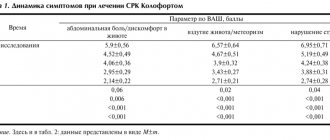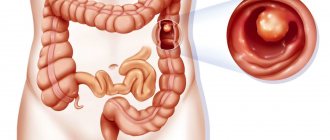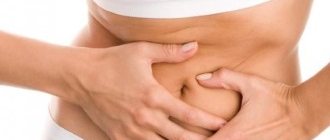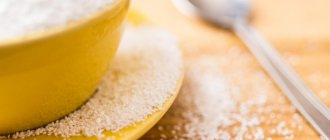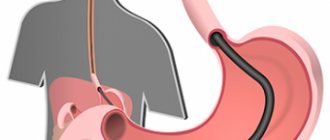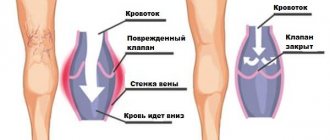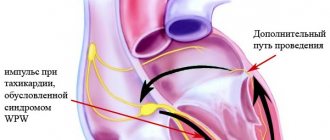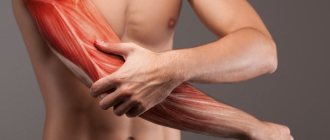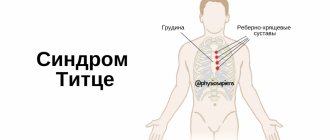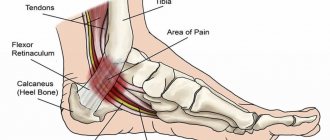Acute stomach pain is one of the most common symptoms, which indicates the presence of acute and chronic diseases of the gastrointestinal tract. To diagnose the disease, specialists determine the nature of the pain, its intensity, and the area of development of painful symptoms. Acute pain in the stomach is also caused by other factors, which representatives of the private medical clinic “KDS Clinic” will tell you about.
Acute pain in the stomach occurs not only with disorders of the gastrointestinal tract. With this symptom, problems with the kidneys, liver and other organs are diagnosed. If the patient is bothered by acute pain in the stomach, the treatment method depends on the patient's condition. Experts resort to the following treatment options:
- Traditional methods;
- Drug treatment;
- Homeopathy;
- In advanced cases - surgical intervention.
What are the causes of constant stomach pain?
Constant pain in the stomach often indicates the presence of gastrointestinal disease. Therefore, the causes of pain may be:
- Pancreatitis. With pancreatitis, the patient feels a sharp pain in the upper abdomen. Pain syndromes intensify after eating.
- Cholecystitis,
- Duodenal ulcer,
- Gastritis. Pain appears on an empty stomach and after eating. The cause of gastritis is considered to be irritation of the mucous membrane.
- Food poisoning. Accompanied by nausea and vomiting, frustration, dizziness and headache.
- Stomach cancer. The patient experiences bloody vomiting, rapid weight loss, and bad breath.
Other causes of acute stomach pain:
- Wrong food intake. The appearance of cutting pain after eating is a typical phenomenon for those who eat junk food. If you eat improperly, a large amount of gastric juice is produced and the metabolism in the body is disrupted. You should avoid eating fatty foods, flour, sweets, and alcohol.
- Internal organ injuries.
- Physical exercise. Sports should be done after consulting a specialist.
- Allergy. With allergies, patients experience acute pain in the stomach.
- Infections. For infections of the gastrointestinal tract, the main symptom is acute pain in the stomach.
Specialists from the private medical clinic “KDS Clinic” added that the state of the gastrointestinal tract is affected by the emotional state of the patient, the presence of stress and stress on the nervous system. The systems of the human body are interconnected.
When to see a doctor
Spasms in the intestines are quite “recognizable” - attacks of cramping pain in the left or right side, in the navel area. But they are often accompanied by other symptoms:
- bloating,
- flatulence,
- heartburn and/or belching,
- stool disorders (diarrhea, constipation or alternation of these conditions),
- abdominal pain during bowel movements or immediately after going to the toilet,
- nervous spasms of the intestines that occur only under conditions of excessive mental stress.
Severe intestinal spasms left untreated can lead to severe digestive disorders and even cause emergency conditions (for example, acute intestinal obstruction). It is important not to delay your visit to the doctor and undergo timely diagnosis and treatment.
“The First Family Clinic of St. Petersburg” offers you the attention and experience of highly qualified gastroenterologists who provide consultations in our multidisciplinary centers in the Primorsky and Petrogradsky districts of St. Petersburg. Make an appointment online or by calling the numbers listed on the website.
Diagnosis of acute cutting pain in the stomach
If you are concerned about the above symptoms, we advise you to go to the clinic and undergo diagnostic tests. Diagnosis of acute pain in the stomach is as follows:
- Consultation with a gastroenterologist. Highly qualified doctors at the private medical clinic “KDS Clinic” will help you find out about your health status and diagnose the disease as soon as possible. After the doctor conducts an initial examination and palpation of the stomach, he will determine the nature, frequency and intensity of pain. It can be aching, cutting, dull and sharp. The diagnosis depends on the nature of the pain.
- Taking tests. Patients undergo a general analysis of blood, urine, and stool. Patients then undergo diagnostic examinations. The examination method depends on the patient's condition.
- Endoscopy. The examination method is the most accurate and allows you to diagnose stomach diseases
To diagnose the complete condition of the body and find out about the presence of other diseases, patients are referred for ultrasound diagnostics. You will undergo an ultrasound examination of the abdominal organs. In some cases, examinations are performed using contrast fluid.
Such procedures include computed tomography and magnetic resonance imaging. Computed tomography and magnetic resonance imaging are the most accurate examinations in modern medicine. You will be able to see changes in the body, learn about neoplasms and disorders.
In addition to acute pain, patients experience:
- sharp pain in the stomach;
- dull pain in the stomach;
- aching pain in the stomach.
Sharp pain in the stomach appears due to the production of gastric juice and irritation of the damaged gastric mucosa. Sometimes the disease develops into gastritis and duodenal ulcer.
Dull pain in the stomach occurs with chronic gastritis. The pain is nagging in nature and occurs after eating. When dull pain occurs, patients are diagnosed with duodenitis. Duodenitis is inflammation of the duodenal mucosa. Pathology manifests itself in all age categories. Acute and chronic duodenitis are classified.
Aching pain in the stomach occurs when bacteria appear in the body. These include infectious diseases. Aching pain is affected by an incorrectly formulated diet, consumption of harmful foods, and chronic gastritis. Pains of this nature appear during the day and at night.
Why does my baby have colic? The reasons for this condition
The causes of colic in newborns are poorly understood, but they are thought to be related to the following:
- baby's intestinal spasms;
- air entering the esophagus during feeding or crying;
- allergies;
- lack of nutrition;
- digestive problems;
- lactose intolerance.
Foods that cause gas formation should be excluded from the child’s diet: chocolate, cocoa, coffee, legumes, fresh vegetables and fruits, sauerkraut, bananas, baked goods, muffins. A newborn baby may experience abdominal colic if a nursing mother consumes the listed products. Source: N.I. Ursova Infantile intestinal colic. Modern data // Issues of modern pediatrics, 2011, v. 10, no. 2, p. 125-131
We diagnose and treat acute stomach pain
Representatives of our medical clinic “KDS Clinic” diagnose the presence of diseases in the early stages. You will receive consultation during the initial examination and further treatment. Clinic experts will examine you and receive test results as soon as possible. You can find prices for all types of diagnostics on our official website.
The clinic regularly runs promotions for comprehensive examinations of all body systems. All detailed information is posted on the website of the private medical clinic “KDS Clinic”. We are located in Moscow, at Belozerskaya street 17-G. Be healthy!
How to understand that a baby has colic: symptoms of intestinal problems
Colic in children can be expressed in bouts of crying (they often occur in the evening), tension and bloating in the abdomen, tightening of the knees, arching of the whole body, redness of the face, and refusal to eat. Usually, with colic, a child does not calm down if you pick him up and rock him to sleep. Breastfeeding can have an effect, but not for long, usually after the end of milk intake, the baby continues to cry.
Colic can also manifest itself as:
- anxiety for no reason;
- difficulty with stool;
- sharp cries during feeding;
- flatulence.
Often colic is accompanied by acne, similar to teenage ones. This is due to the fact that during the period of colic, the mother’s hormones received in the womb leave the child’s body. Hormonal balance is disrupted.
Choosing a medicine for colic in a newborn
Choosing the best product for a newborn is very difficult. Pharmacy counters offer a wide range of emergency medications for infant colic.
These can be herbal-based drugs, based on dimethicone or simethicone, antispasmodics, probiotics, enterosorbents. Some are used for prevention, others directly relieve pain.
It is difficult to say which one is suitable for a particular child. Each organism is individual. To make it easier to make a choice, let's consider the features of the most popular medications.
Herbal preparations
The drug should be given before each feeding
The plant base indicates the safety and naturalness of the raw materials. These are fennel fruits, cumin, anise, mint, chamomile. They are brewed and given to the baby. You can buy a ready-made carminative.
The most popular drugs are:
How to help a child when he is sick and what to do? Treatment methods
There is no clear treatment for colic in children, but pediatricians advise the following:
- abdominal massage after feeding;
- gymnastics (pressing your legs to your stomach);
- after feeding, you need to carry the baby upright for fifteen minutes so that he burps;
- place the baby on his stomach. Source: E.S. Keshishyan, Doctor of Medical Sciences, Professor, E.K. Berdnikova Functional intestinal colic. Tactics for their correction in young children // Medical Council, 2013, pp. 106-109
In some cases, your doctor may recommend using a special gas tube.
If the colic is severe, then a gas tube may be used.
Medical pediatricians will teach you how to properly give your baby a breast or a bottle so that he does not swallow excess air when feeding. Correcting the nutrition of a nursing mother is also important. The list of prohibited products is compiled together with the attending physician.
In some cases, doctors recommend taking medications to stabilize the child’s condition. Specific prescriptions depend on the identified causes of the child’s anxiety.
The following medications are often prescribed:
- probiotics;
- sedatives;
- medications for dysbacteriosis;
- preparations with enzymes.
What can you give a child for colic?
- Herbal carminatives.
- Enzyme preparations.
- "Espumizan" if the cause is flatulence.
- Dill decoction when colic is caused by gases.
- Herbal preparation "Plantex".
- Defoamers based on simenticon (when the cause is flatulence due to foaming in the intestines). These are “Espumizan L”, “Sab Simplex”, “Bobotik”.
- No-Spa will help relieve spasms.
- If the cause is a microflora disorder, then probiotics are given, for example Lactobacillus reuteri.
School age children (from 6 to 18 years old)
At this age, children can already describe their feelings in detail. In this age group, it is important to pay attention to the psycho-emotional status of the child. If a child has recently experienced major emotional events or experienced stress, then it is worth thinking about and not ruling out a similar cause for the child’s well-being as an element of psychosomatics. It is necessary to find out the duration, localization and nature of the pain, the connection with food intake, and the nature of the stool. In girls of puberty, the cause of abdominal pain can often be acute gynecological pathology, such as uterine blood reflux, apoplexy, ovarian torsion, etc., requiring immediate surgical intervention.
Disease prevention
Preventive measures for colic in children come down to monitoring the nutrition of the nursing mother and following other pediatrician’s instructions from the first days of life.
During the first year of a child's life, it is especially important to regularly visit a qualified pediatrician and follow all his instructions. Doctors at the pediatric medical department have the necessary qualifications and experience to treat the youngest patients. If your baby experiences anxiety, often cries and sleeps poorly, then consult a pediatrician at SM-Clinic.
Sources:
- N.I. Ursova. Infantile intestinal colic. Modern data // Issues of modern pediatrics, 2011, vol. 10, no. 2, pp. 125-131.
- I.A. Belyaeva. Intestinal colic in newborns and infants: from diagnostic issues to differentiated correction // Issues of modern pediatrics, 2011, v. 10, no. 2, pp. 137-140.
- E.S. Keshishyan, Doctor of Medical Sciences, Professor, E.K. Berdnikova. Functional intestinal colic. Tactics for their correction in young children // Medical Council, 2013, pp. 106-109.
Grek Elena Anatolyevna Clinic
Author of the article
Grek Elena Anatolyevna
Doctor of the highest qualification category
Specialty: gastroenterologist
Experience: 23 years
The information in this article is provided for reference purposes and does not replace advice from a qualified professional. Don't self-medicate! At the first signs of illness, you should consult a doctor.
Signs of acute colic
Usually, during an attack, the child screams shrilly and unexpectedly , and shows extreme anxiety during feeding. Until the attack ends, it is almost impossible to calm the baby down - neither motion sickness, nor changing clothes, nor regurgitation help. Source: I.A. Belyaeva Intestinal colic in newborns and infants: from diagnostic issues to differentiated correction Issues of modern pediatrics, 2011, v. 10, no. 2, pp. 137-140. Lying in bed, the child tosses and turns from side to side, clenches his fists, and may blush or turn pale. You can see a “grimace of pain” on his face. The abdominal muscles become stiff and tense, which can be felt when touched. You can see bloating in the abdomen, the child is passing gas in large quantities.
Colic as a symptom
Although in medicine it is not customary to call colic either a disease or a symptom, they do occur against the background of other diseases. That is why it is imperative to show the child to the pediatrician to rule out:
- intestinal spasm;
- intestinal obstruction;
- flatulence;
- abnormal development of the gastrointestinal tract;
- disruption of the digestion process;
- lactase deficiency;
- allergies.
How to relieve a spasm safely and quickly?!
Symptoms
Symptoms associated with irritable bowel syndrome:
- pain and discomfort that improves after going to the toilet;
- flatulence
- feeling as if the intestines are not empty;
- a sharp and urgent urge to go to the toilet;
- constipation, diarrhea
According to various sources, from 15% to 30% of the entire earth's population suffer from this syndrome and only a third of patients consult doctors. According to statistics, irritable bowel syndrome affects women 2-4 times more often than men. 25-40 years (i.e. working age) is the peak incidence, and older people over 60 practically do not encounter this syndrome.
Causes
The occurrence and development of the disease is associated with the characteristics of the human body. Most often, irritable bowel syndrome is diagnosed in emotional people with an unstable psyche who are susceptible to stress. Also negatively impacted by:
- disrupted diet;
- fiber deficiency;
- hypodynamic lifestyle;
- in women - gynecological diseases;
- hormonal disorders - premenstrual syndrome, menopause, diabetes, etc.;
- dysbiosis caused by intestinal infections.
Symptoms of the syndrome
Due to these factors, the sensitivity of intestinal receptors decreases, which means its functioning is disrupted. Pain occurs due to spasms or excess gas formation, which causes stretching of the intestinal walls.
You can diagnose irritable bowel syndrome yourself, based on the following signs of the disease:
- pain around the navel or lower abdomen that occurs after eating. As a rule, it goes away after the passage of gas or bowel movements;
- diarrhea in the morning or in the first half of the day after eating;
- flatulence;
- constipation;
- after going to the toilet - a feeling as if the intestines were not completely emptied;
- less often - nausea, belching of air, a feeling of heaviness in the stomach.
It is also interesting that all symptoms arise due to stress - both mental and physical. Often these symptoms are accompanied by a headache, a lump in the throat, poor sleep or even insomnia, a feeling of lack of air, tinnitus, dry mouth, a feeling of weakness, and frequent urination.
Relieve spasm safely and quickly>
How to treat?
At first, it is very important to distinguish this syndrome from a disease caused by bacteria and viruses. To make an accurate diagnosis, the doctor prescribes a number of studies:
- blood and stool tests;
- irrigoscopy - the intestines are filled with a contrast agent and examined using X-rays;
- sigmoidoscopy - the rectum is examined using an endoscopic apparatus, penetration depth is 30 centimeters;
- Colonoscopy is a study similar to sigmoidoscopy, but the section of the intestine is narrower than one meter.
It is very important to normalize mental life in order to defeat this disease. Therefore, it is necessary to act on two fronts: a psychologist will help you take control of your emotions, and a gastroenterologist will give instructions on how to cope with the symptoms.
In some cases you will have to follow a diet. You will have to remove everything smoked and spicy, alcoholic drinks, coffee and chocolate, as well as foods that cause gas formation from your diet. Instead of excluded products, you need to fill your menu with a variety of vegetables, fruits and dairy products. Meat and fish dishes will also be healthy, but only if they have been boiled or steamed. Wheat bran and wholemeal bread are also recommended products.
Depending on the symptoms bothering the patient, the doctor may prescribe medications in addition to diet.
Tips for patients with irritable bowel syndrome:
- Play sports;
- Normalize your daily routine;
- Avoid overexertion - both mental and physical
- Learn to take life more lightly - don’t worry about trifles and trifles.
Relieve spasm safely and quickly>
